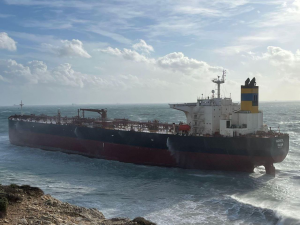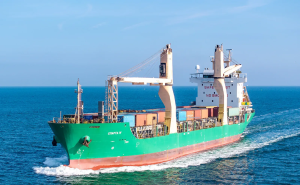Which companies transport Rosneft, avoiding Ukrainian sanctions
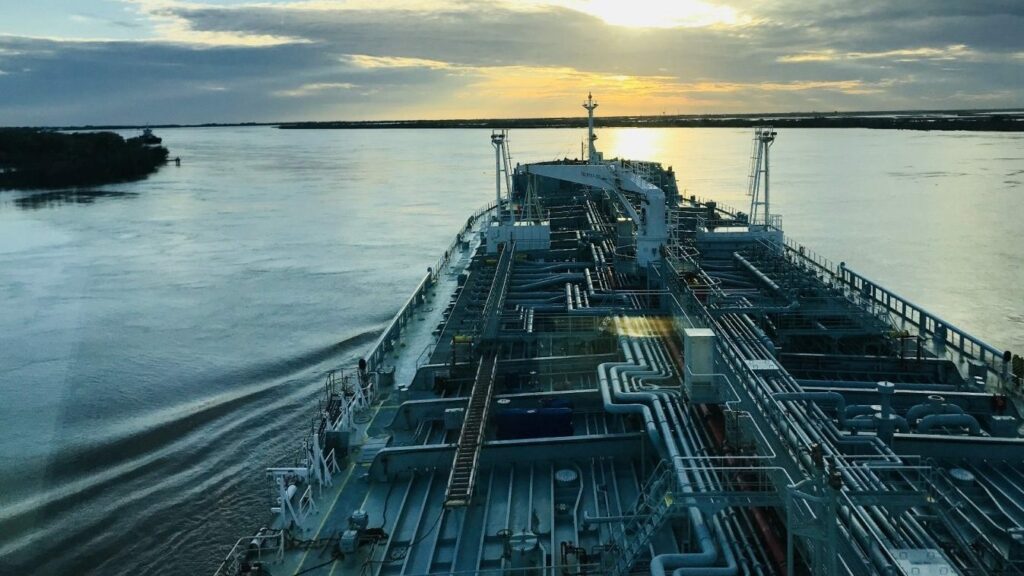
Greek shipowners, who recently left the list of “war sponsors” from the NAC, still continue to transport Russian oil, in particular, to EU ports. USM shows, on the example of one tanker, how unscrupulous companies cooperate with an aggressor country.
Since the beginning of the full-scale war, the civilized world has thought about gaining energy independence from the fuel-aggressor country.
A year before the full-scale invasion — in 2021 — EU countries bought 47% of Russian oil products. This is 2.2 million barrels per day of crude oil and another 1.2 million barrels per day of petroleum products. In total, in 2021, Russia supplied the EU with 108.1 million tons of crude oil worth $50.9 billion.
However, since February 2022, European governments have thought about the ethics and expediency of importing Rosneft. Thus, already on December 5, 2022, EU price restrictions on Russian oil delivered by sea came into effect. Therefore, if European companies planned to transport raw materials from the Russian Federation to third countries, such oil should cost no more than USD 60 per barrel. At the same time, the import of oil from the aggressor country to the ports of Europe is completely prohibited.
Instead, the restrictions created opportunities for some carriers who were unconcerned by moral or other standards. For example, some ship owners transport oil from the Russian Federation at a higher price to countries with which the aggressor country was able to “deal”. And some European states began to turn a blind eye to the fact that Russian raw materials reach their ports.
Friends of Moscow
It happened so that shipowners from Greece were most often noticed in cooperation with the Kremlin. First of all, we are talking about such tanker companies as “Minerva Marine”, “Thenamaris”, “TMS Tankers”, “Dynacom Tankers Management” and “Delta Tankers”.
In the summer of 2022, the Ukrainian National Agency for Corruption Prevention (NACP) granted the status of “war sponsors” to these companies. However, already in November 2023, three shipowners — “Minerva Marine”, “Thenamaris”, “TMS Tankers” — were excluded from the sanctions list.
NACP claimed that Greek companies stopped transporting Russian oil. There is a nuance here, because tankers calling at the Russian port of Novorossiysk often loaded oil from the CPC (Caspian Pipeline Consortium) terminal.
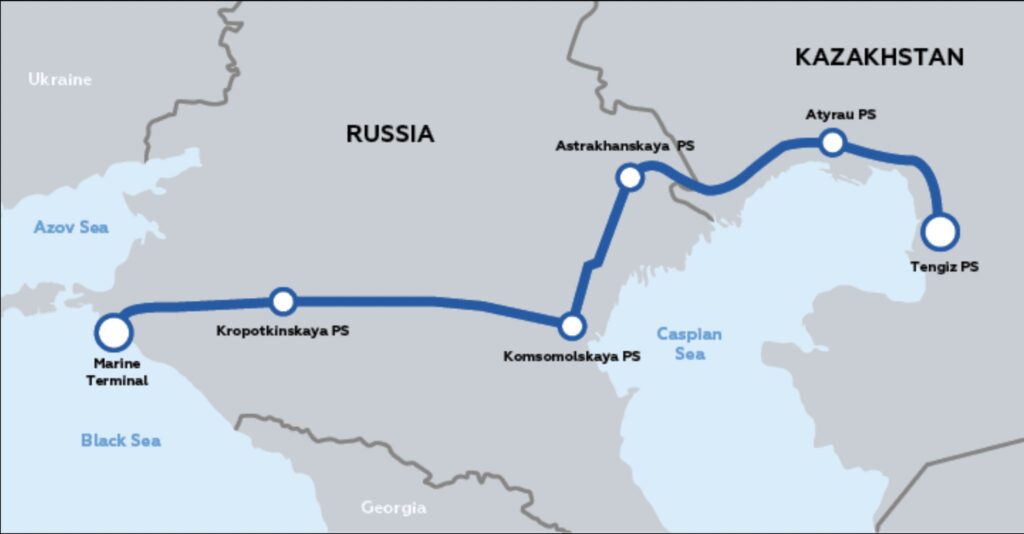
Formally, CPC is an international company that operates an oil pipeline that runs from the fields of Western Kazakhstan (Tengiz, Karachaganak). However, more than 30% of the company’s shares belong to Russians. Therefore, this route also transports a significant part of raw materials from the deposits of the Russian Federation.
Therefore, European tankers that still enter Russian ports most often transport oil of Kazakh or mixed origin, which is extremely difficult to trace. Among them are the vessels of already known companies “TMS Tankers” and “Minerva Marine”.







Next to the CPC terminal in Novorossiysk is the “Sheskharis” terminal – one of the largest oil filling complexes in the south of the Russian Federation. As of the end of 2023, through these two facilities, Russia exported about 11 million tons of oil and 3 million tons of diesel fuel every month.
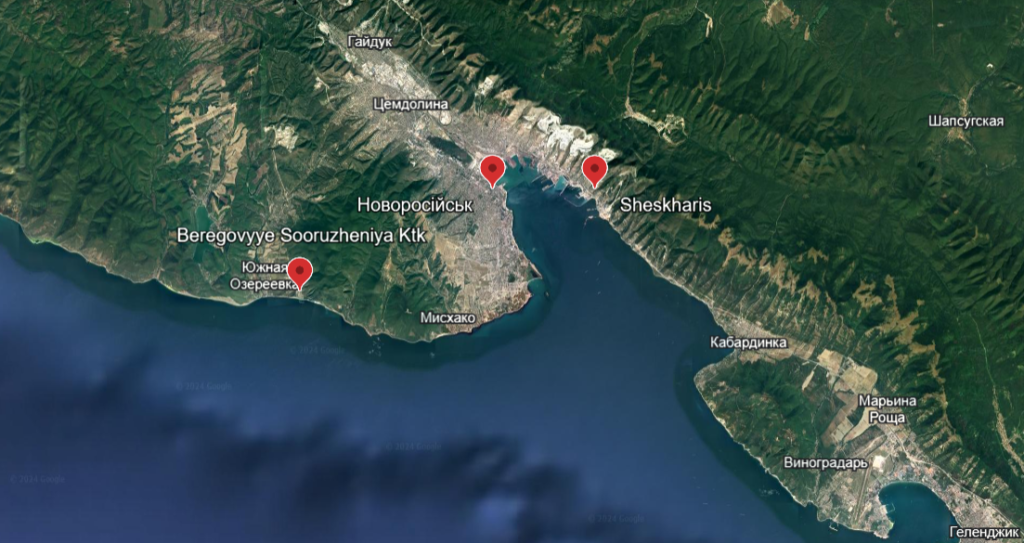
As we mentioned earlier, European (actually, also Greek) tankers have the right to transport Russian oil from “Shesharis” – under the conditions of compliance with the “price ceiling” of $60 per barrel, and only to non-EU countries. Thus, the above-mentioned “Minerva Marine” will continue to transport the oil of the aggressor country to third countries — in particular, to the ports of Israel.
According to the information discovered by the USM, and later confirmed by the head of the Monitoring Group of the Institute of Black Sea Strategic Studies Andriy Klymenko, during February 2024 Rosneft tankers “Minerva Emily”, “Minerva Joanna”, “Minerva Antonia” and “Minerva Anna” were transported to the Israeli port of Haifa.



Theoretically, transporting raw materials from the Russian Federation to Israel, these vessels could faithfully adhere to the “price ceiling” for Russian oil. However, it is still quite difficult to verify this information, as shipping companies rarely state the terms of the contract in general.
Insolence or stupidity?
However, there is one case that differs from the previous ones. If other tankers violated the “price ceiling” theoretically, then there was a violator who does not try to hide his crime in any way.

On January 24, 2024, the “Minerva Olympia” tanker (deadweight 144,000 tons) left the port of Novorossiysk with a cargo of Russian crude oil.
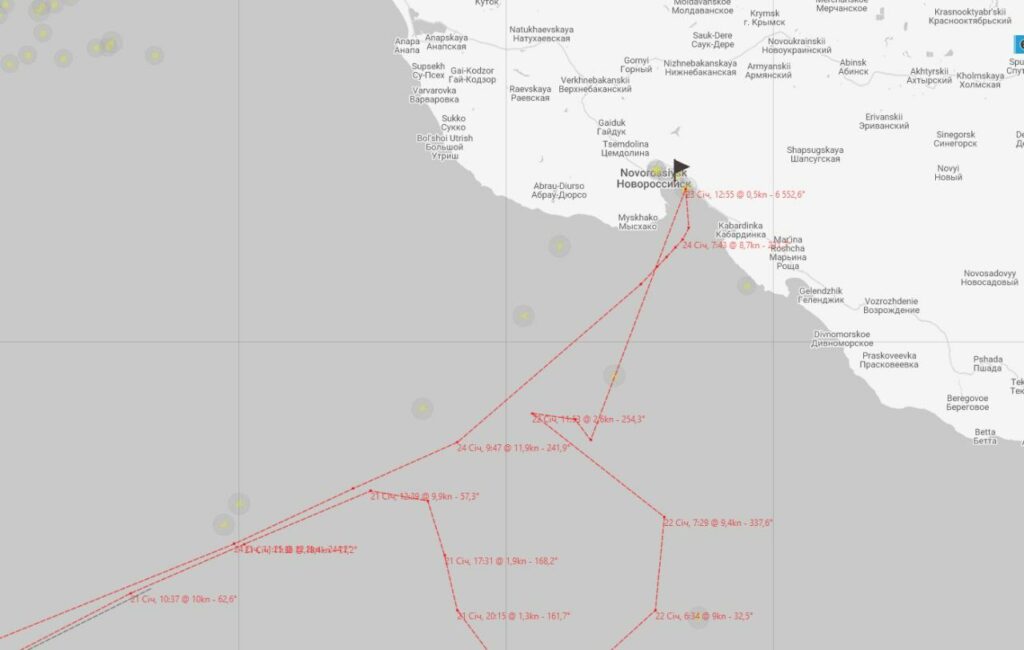
According to information from ship traffic tracking sources, the tanker headed to the Sicilian port of Milazzo (Italy). Data from the Monitoring Group of the Institute of Black Sea Strategic Studies show that the tanker followed a very strange trajectory.
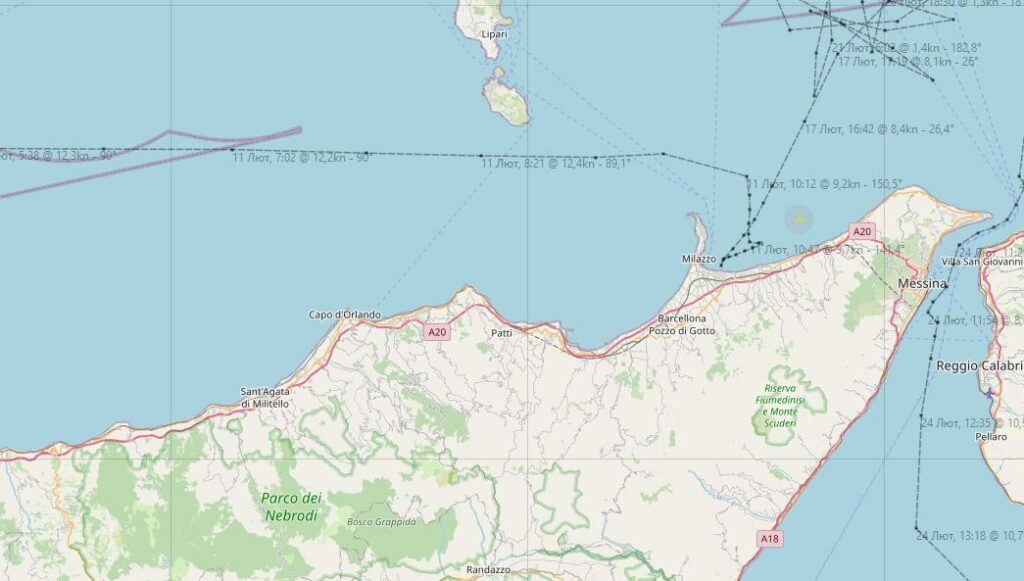
This is a gross violation of the embargo of the EU and the G7 countries. We remind you that it is still prohibited to import raw materials to EU ports. Violating companies face not just reputational risks, but quite serious economic sanctions.
Thus, in November 2023, the US Treasury Department requested information from shipping companies from 30 countries about a hundred vessels suspected of transporting Russian oil in violation of Western sanctions. Such vessels cannot enter most ports of Western countries and use the services of European and American insurers.
This deals a serious blow to carriers of sanctioned raw materials from the Russian Federation. Thus, in the first weeks of 2024, operators of offending tankers began to scrap vessels under the influence of sanctions.
However, the tightening of restrictions against “war sponsors” by the US did not prevent the Ukrainian National Security Agency from canceling them.
Read also: How tanker companies invent new loopholes for transporting Russian oil
At the time of publication of the material, the list of “international war sponsors” ceased to exist. In particular, such a decision was made after the report of the Ministry of Foreign Affairs about the lack of a regulatory framework for the formation of such a list in the NACP.
Therefore, the agency probably did not have sufficient grounds to exclude Greek shipowners from the “black list”. And the facts of illegal transportation of Russian oil are documented and tracked by analysts. It is interesting whether Ukraine will create a new reputation tool instead of the “list of international sponsors of war”, or whether they will rely on the USA and the EU, which regularly add new vessels and companies that do not shy away from Russian money to their sanctions lists.
Daniil Popov

